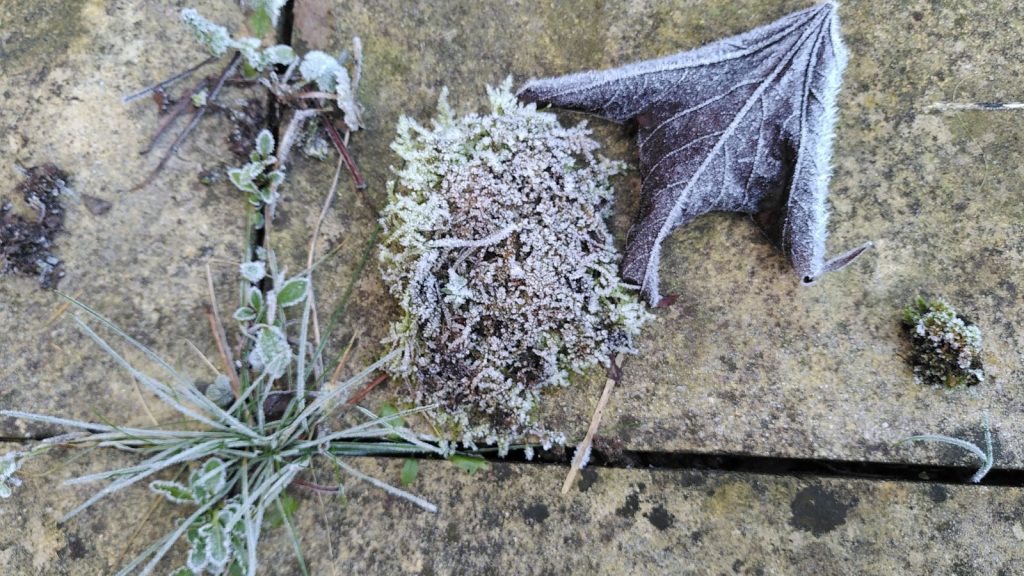Thermoctopus

In the town of Grimshore, during a deep winter in the month of January in the near future, a strange visitation occurred. Thick pipes began to appear overnight by the pavements and in the byways. At first, they drew little attention. Mayor Cutter had spoken of his Big Heating Plan; everyone assumed they were a part of that. There was much talk of how expensive his plan would be; heads were shaken at his decision to use carbon-emitting fuel.
A few of the more adventurous souls touched the pipes to see if they were warm yet. They were, but only barely so, because heating pipes are well insulated. Some even put their ears to them. But there was nary a sound.
It soon turned out, however, that these were far from ordinary pipes: they were alive. One morning, when the temperatures dipped and the sky was winter blue and frost clouded the windows of Grimshore, the pipes began to fling themselves around, rearing up into the air, then swooping to the pavements; bending round street corners as though searching for something. At first they scared the town with their apparently violent movements, but the people soon saw that they were wrong to be afraid. The pipes proved to be adept in moving around them, careful not to harm Grimshaw life, whether human or animal. The people grew used to stepping over them or cycling under them, sure in the knowledge that they would not move until they had passed. Pets entered into a peaceful coexistence with the pipes.
The pipes were grey – like the trunks of elephants, someone suggested. No, they were more like snakes, another opined. Still no, someone else ventured – with the final word on analogies for what should by all rights have been stiff and boring infrastructure – they were more like the tentacles of an octopus. The people dubbed them Thermoctopus.
And then the heating began. An elderly woman who lived alone, huddled beneath her blankets, was met by a pipe which had opened her front door. It twisted up to her in her front room and poured warm air over her from its tip, radiating heat upon her outspread hands from a bright element.
Stories came in of many similar incidents. It became clear that the pipes were travelling to whomever could not afford enough energy, to warm them. They visited at unpredictable times, but often enough to keep away the cold, apportioning themselves among the many who needed them.
But where did the pipes come from? If they were the tentacles of an octopus, mustn’t they originate at the body?
Some of the town formed posses in order to find the pipes’ origin. They split up – a few adults and children for each pipe and for each direction along it – and ran alongside to try to catch up with their ends and their beginnings. But after a while those who had run in different directions along the same pipe bumped into one another, as though the pipes were all loops. Yet they had ends, because it was the ends that heated the vulnerable in the town. The people discussed this at length in schools and pubs. It was an apparent impossibility, like an Escher drawing. The pipes must have fooled them, feinting to distract them with their movements and then reconnecting themselves unobserved.
After a while, they ceased to try to solve the mystery of the pipes. They accepted their warmth like the gift it was.
All of the town, that is, except for Mayor Cutter. The pipes had undermined his Big Heating Plan. Since their first appearance, he had stormed around the town hall, red-faced and shouting at whoever he came across. It was all very well for this Thermopipopus, or whatever it was called, with its pipes, legs, arms or tentacles or whatever they were supposed to be, as he put it, to deliver warmth to the poor and needy, but Maxwell Maxwell, Chief Executive Officer of the Big Heating Corporation, was losing zillions of pounds in lost revenues. Maxwell had been on the blower, leaving Cutter in no doubt that this dreadful thermos-octopus thing was to be stopped. Cutter was to track down the body, the head or whatever you called the bit that wasn’t tentacles, and “neutralise” it. Otherwise, Cutter’s impending marriage to Cynthia Maxwell, the brilliant opera singer and Maxwell’s daughter, would be on the coals. Or the rocks. Or the frying pan. Or whatever you called it.
Cynthia Maxwell had other ideas, however. Both Cutter and her father were behaving very badly – indeed, she now realised that the smooth-talking Cutter was not the sensitive soul she had once taken him for when he had spoken of bringing warmth to the people of Grimshore. She was a fan of Thermoctopus, who had visited her aunt to warm her on a particularly cold night. Cynthia felt it was her duty to alert Thermoctopus to Cutter and Maxwell’s plans to neutralise it. No one had found Thermoctopus’s body so far, but that didn’t mean it didn’t exist – the heat must come from somewhere – and Cutter might just find it, plunging many of the townspeople back into energy poverty.
Unless she found the heating heart of Thermoctopus first.
Cynthia arranged to give a free concert in the town square. She knew that octopuses were intelligent and sensitive creatures; perhaps Thermoctopus would respond if she could sing sweetly enough, with flowing notes like currents in water or air. That night she sang with all her heart, reducing to tears many who came to hear her. As her melodies flew into the cold night, pipes began to appear in the square. They coiled and collected – something no one had ever seen before – all round the concert.
And then the body of Thermoctopus appeared, looming over the nearby buildings. It was a nuclear fusion reactor, as the scientists among the crowd could immediately tell from its enormous magnetic field, with two bright lights pulsating like eyes, generating enough clean energy to power the planet, but choosing for now to bring it all to the town of Grimshore.
Mayor Cutter, who had said a few words before the concert in a futile bid to win back Cynthia’s heart, shook his fist at the large head above him. He called for the workers he had ordered to stand ready with heavy machinery to seize Thermoctopus.
The workers climbed out of their vans and lorries. But they refused to obey Mayor Cutter. Thermoctopus had brought warmth to many of their relatives. Some of the workers themselves had been warmed by the pipes. Cutter’s Big Heating Plan, with its unaffordable and unclean energy, could go hang.
There was a cheer from the crowd.
In the mayoral election of the following spring, Thermoctopus won by a landslide. Grimshore has never wanted for heat or light since.





